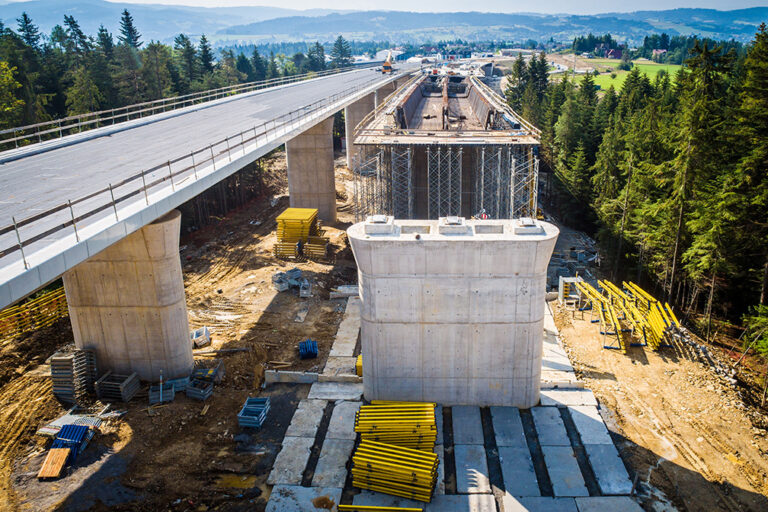WASHINGTON — U.S. Secretary of Transportation Pete Buttigieg announced in mid-September that the Biden-Harris administration has awarded $1.5 billion from the competitive Infrastructure for Rebuilding America grant program for highway, multimodal freight and rail projects.
According to a statement from the U.S. Department of Transportation (DOT), these projects will make the nation’s transportation systems safer and more resilient, eliminate supply chain bottlenecks, and improve critical freight movements.
The statement also noted that President Joe Biden’s Bipartisan Infrastructure Law increased funding for the INFRA (Nationally Significant Multimodal Freight & Highway Projects) program by more than 50% to help meet high demand for federal funding to support projects across the country. Over the next five years, the Bipartisan Infrastructure Law will provide approximately $8 billion for the INFRA program, including the $1.5 billion made available in this round of funding.
“Today we are announcing transformative investments in our nation’s roads, bridges, ports, and rail to improve the way Americans get around and help lower the costs of shipping goods,” U.S. Transportation Secretary Pete Buttigieg said Sept. 15. “Using funding from President Biden’s Bipartisan Infrastructure Law, we are able to support more excellent community-led projects this year than ever before.”
In addition to prioritizing projects that will deliver national or regional economic benefits, INFRA projects were evaluated based on safety, how they supported freight movement and job creation, their efforts to address climate change and resiliency, impacts on equity and quality of life, how they applied innovative technology, their cost-effectiveness, and demonstrated project readiness. The DOT awarded a significant amount of funding to rural areas, historically disadvantaged communities and areas of persistent poverty to address historic underinvestment in these communities. Approximately 43% percent of awards will go to rural projects, exceeding the statutory requirement to award rural projects 25% of INFRA funding.
The Bipartisan Infrastructure Law also expanded INFRA eligibility to include items such as wildlife crossing project, marine highway corridor projects and surface transportation projects located within or functionally connected to an international border crossing.
The following are a few examples of this year’s INFRA grant projects recipients:
I-4 West Central Florida Truck Parking Facility: This project will tackle the shortage of commercial truck parking on a corridor between Tampa and Orlando, which carries an average of 18,000 trucks daily. The project will construct a new truck parking facility with approximately 120 spaces, electric charging stations and pedestrian infrastructure to access nearby commercial amenities. The truck parking facility will be connected to the Florida Department of Transportation’s Truck Parking Availability System to help commercial vehicle drivers find available parking and will include at least six electrical hookups to provide stand-by power for refrigerated trucks and auxiliary power for in-cab comforts.
I-39/90/94 Wisconsin River Bridges: In Columbia County, Wisconsin, the existing Interstate 39/90/94 Wisconsin River Bridge will be replaced with two new bridge spans dedicated to serving traffic in opposite directions. Two overcrossing bridges for county roads will also be replaced. According to the USDOT, the project addresses the declining state of the bridges, which if not addressed now, could have frequent and lengthy closures for repairs and negative impacts on supply chains in the future. Twenty-three percent of the bridge traffic is composed of truck traffic, as the route links economic hubs in Madison, Milwaukee, and Chicago.
Otay Mesa East Port of Entry Project: This San Diego project includes constructing a new road (State Route 11) and Port of Entry facility at Otay Mesa. The new port of entry will provide an alternative for nearly 3,600 trucks that cross the existing Otay Mesa and Tecate Ports of Entries daily, both of which are operating at capacity. The project facilitates freight movement across borders with destinations at nearby distribution centers and warehouses, the Ports of Los Angeles and Long Beach, and the Inland Empire’s mega-distribution centers in Riverside and San Bernardino counties.
I-40 Truck Parking and Bridges Replacement: This project, along Interstate 40 in Smith County, Tennessee will upgrade welcome center ramps to meet current standards, add approximately 125 truck parking spaces and upgrade the adjacent bridge structures on I-40 over the Caney Fork River. The project will increase drivers’ access to truck parking and reduce illegally parked commercial vehicles.
The full list of proposed awards can be found here.
The Trucker News Staff produces engaging content for not only TheTrucker.com, but also The Trucker Newspaper, which has been serving the trucking industry for more than 30 years. With a focus on drivers, the Trucker News Staff aims to provide relevant, objective content pertaining to the trucking segment of the transportation industry. The Trucker News Staff is based in Little Rock, Arkansas.








